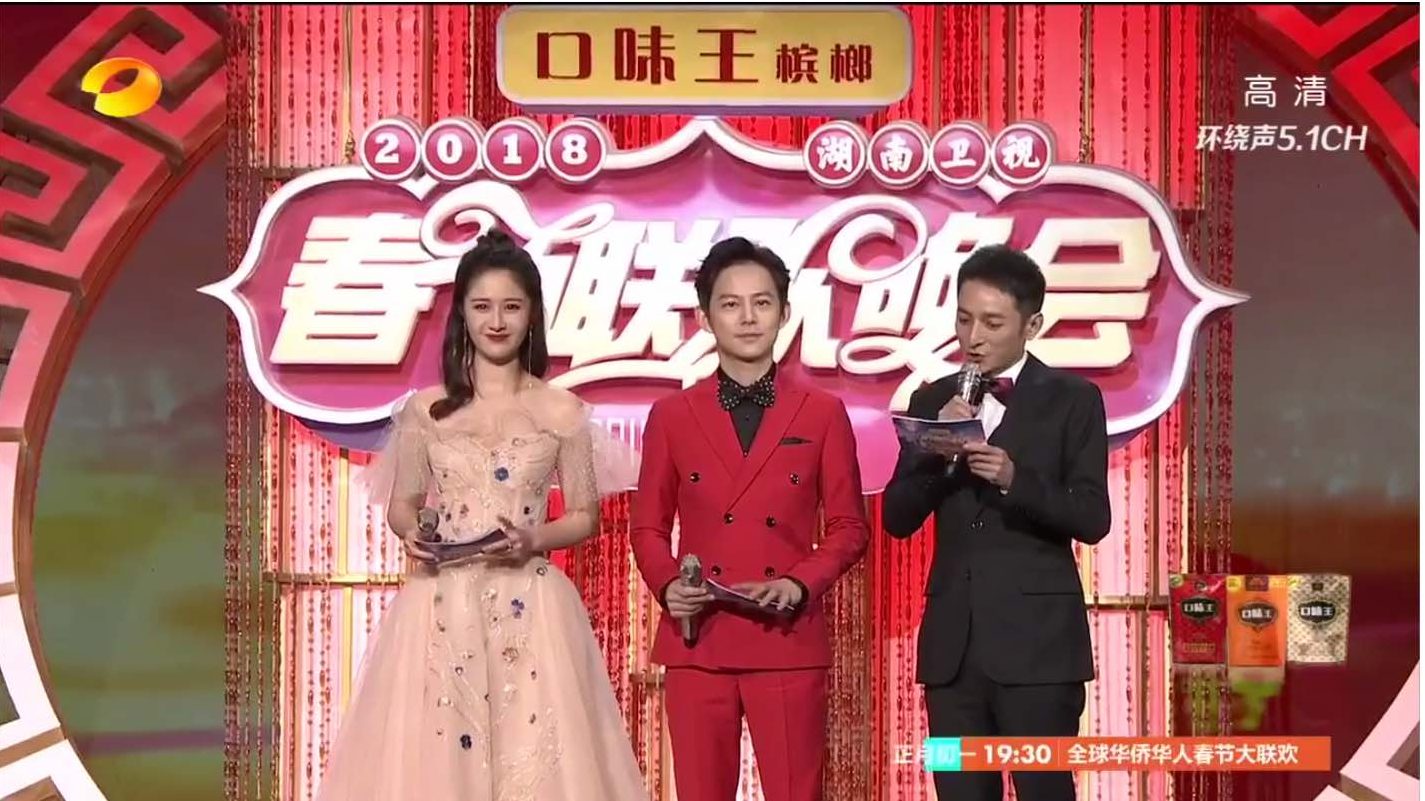During HunanTV’s live Spring Festival Gala broadcast on Thursday, host Li Weijia accidentally mangled the tones for top leader Xi Jinping’s name, referring to him as Xí Jìnpīng instead of Xí Jìnpíng, before quickly correcting himself. Even this seemingly innocuous and understandable mistake—possibly a result of Li briefly slipping into his local dialect—has sparked a broad and intense wave of information control, with discussion deleted and blocked on Weibo, Baidu’s Tieba, and Douban. Weibo searches for "Weijia’s slip-up" (维嘉口误) produce no recent results. User @Fictitious_Co attempted to post the phrase as a test: after reporting that it appeared normal to them but invisible to others, they received notification that the post observing this had been deleted. CDT Chinese has collected several screenshots of deleted discussions of the censorship in other forums. The station itself not only edited the mistake out of the full video posted to YouTube, but successfully requested a copyright takedown of a clip posted to highlight it. CDT uploaded another, which was then also removed.
Similar slips have prompted seemingly disproportionate responses in the past. In 2016, editors at Tencent’s online news portal were disciplined over a typo that changed "[Xi] delivered an important speech" to "[Xi gave] an important speech in a furious manner." Another slip that March saw a Xinhua report briefly call him China’s "final," rather than "highest," leader. That December, four China News Service journalists were suspended for yet another typo which confused a "speech" by Xi with his "resignation." Elsewhere, an Indian newsreader was fired in 2014 for mistaking Xi’s surname for a Roman numeral and calling him "Eleven Jinping."
In a speech at the 2016 G20 Summit in Hangzhou, Xi himself misread a somewhat archaic phrase for "be lenient to farmers" as the erotically tinged "loosen clothing." The University of Pennsylvania’s Victor Mair described this at Language Log as a "horrendous gaffe" which "even someone with a middle school education should not have made". The error prompted two official directives that were obtained, translated, and published by CDT:
Weibo, WeChat public accounts, blogs, forums, bulletin boards and other interactive forums, please filter and intercept content related to “tongshang kuannong [通商宽农],” and strictly delete comments, photos, videos, and related information. (September 4, 2016) [Chinese]
All websites must conduct 24-hour monitoring and manual cleaning of content related to the leader’s slip of the tongue over “tongshang kuannong [通商宽农]” during his G20 speech. Do not use keyword filtering in the backend. Provide an updated report on the situation every two hours to your superiors. (September 5, 2016) [Chinese]
To avoid similar embarrassment during last October’s 90th anniversary celebrations for the founding of the People’s Liberation Army, the unusual first character in the phrase kuīrán bù dòng (岿然不动), meaning to "steadfastly stand one’s ground," was annotated on Xi’s teleprompter with tone-marked pinyin. This was accidentally captured in TV footage of the audience:
Both cases appear to have been misfired attempts to display Xi’s erudition using obscure phrases, in the same vein as the frequent showcasing of his purportedly voracious reading history. The actual effect has only been to intensify jibes about his lack of formal education. Xi’s childhood schooling was disrupted by the Cultural Revolution, and skeptics view his later academic achievements as political fig-leaves. As a result, Xi is sometimes referred to disparagingly as chūzhōngshēng (初中生), or "junior high-schooler."
In his 2016 book "A Billion Voices: China’s Search for a Common Language," David Moser wrote that "the language requirements for Chinese TV and radio professionals are some of the most stringent in the world. [… F]or any official media professional with a microphone, the uttering of a non-standard pronunciation or faulty tone is subject to a fine." But Li Weijia’s stumble introduced no disrespectful or subversive double meaning, nor would it appear to be an embarrassment akin to a mistake by Xi himself. Accordingly, much of the fleeting discussion on China’s internet has focused on the question of why it is a sensitive topic at all.









